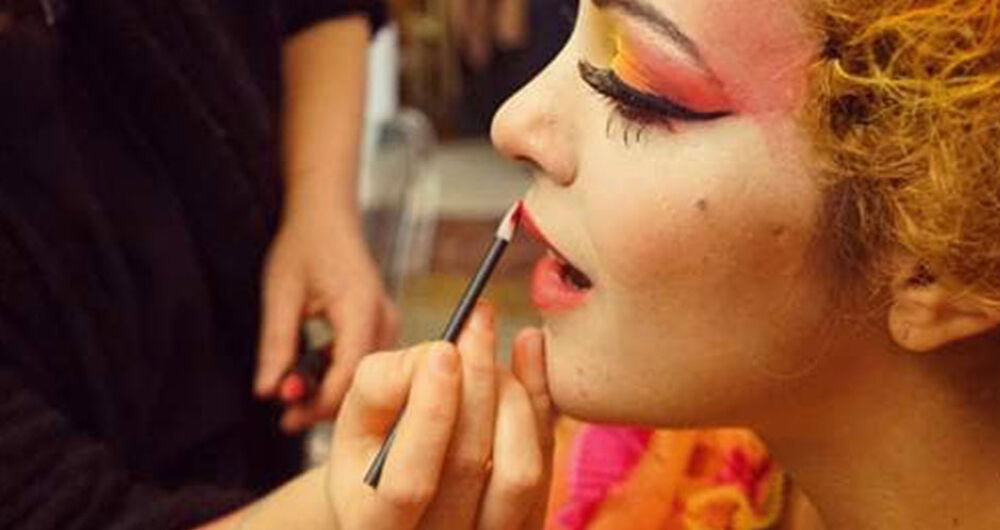We continue our journey through the stories of alumni in career and today we discover Natasha Mazzelli's path, who attended both the Hair and Make-up Artist Course and the Special Make-up Course, and told us how she came to be a popular freelancer today.
Natasha, how did you discover the world of special effects and how did you decide to enrol in the Academy?
I started to love and learn about this world through cinema and art. Observing a lot, from a very young age, I realised that I was intrigued by everything that was made for film or art productions, so basically everything that is created in a laboratory by technicians such as effect artists. I wanted to understand the creation process of a props or an effect, but also the preparation of make-up was something I was very interested in.
Looking at the Academy's offer, I discovered that the Hair and Make-up Artist Course included a module dedicated to special effects, so it seemed like the perfect combination of knowledge to start my journey. I therefore initially enrolled in this course, to continue as soon as I finished with the Special Make-up Course.
What did you enjoy most about our Special Make-up Course?
Certainly the care of all the technical and professional aspects of teachers Mestroni and Davite, but also the possibility of realising a personal project inspired by a previously chosen theme under the guidance of the teacher. The teachers follow the students in a one-to-one relationship, so you are really guided from start to finish of each project. I remember that the teachers, with patience and professionalism, were always at each student's side to help with difficulties and resolve any doubts. The continuous practical demonstrations were also of fundamental importance, allowing us to clarify all the steps and learn the complex processes that lead to creating a character.
What is the project you were most passionate about during the course and which perhaps represented the greatest challenge for you?
I must say that it is difficult to choose one. Every single project has excited me and made me discover new things, from the smallest with the initial impromptu effects to the most complex applications. All have been a great challenge and a source of curiosity and enthusiasm. I remember with particular emotion the final exam and the individual work on the 'Phantom of the Opera', but if I have to choose just one project, it was definitely the group project with my classmates, where we were able to share both the work and a great life experience.
And after the Academy? What are you working on today?
I had the wonderful opportunity to work for several months with a great effect artist in his laboratory, getting to know other professionals, each with a different specialisation, witnessing complex and articulated work, touching and seeing every single step and design of the work.
I alternated between working in the laboratory as a junior and working in Theatre, which I currently do, in the Hair and Make-up department as a theatre make-up artist and hairdresser, and as an effect artist. I have worked and still work in theatres and cultural institutions such as the Regio in Parma, the Arena di Verona, the San carlo Theatre, the Spoleto Festival, the Nervi Festival, the Rome Opera and the Roberto Capucci Foundation.
What do you think the market in Italy is like for this very particular profession?
I believe there are many possibilities here in Italy as well, with realities that bring together more and more professionals of all ages.
Clearly, the effects artist's work is a niche in the wider world of make-up: it has more complex timescales and approaches, the acquisition of skills is less immediate, and the realisation of projects is mainly done with the support of a team in a specialised laboratory, not individually.
Are there any social profiles of effects artists that you particularly follow? Who inspire you?
Yes, of course, for example that of Leonardo Cruciano, with whom I had the pleasure of working. In his laboratory I had the incredible opportunity to witness the work of many effects artists on the field and to ask them for explanations and advice. The first of these professionals was certainly Roberto Mestroni, a teacher at the Academy, who before all the practical and technical notions always contaminated me with his passion. Other profiles I follow are @Red Girl, @Andrew Maccallum, @Gigi Ottolino, @Poza Bustamante.






